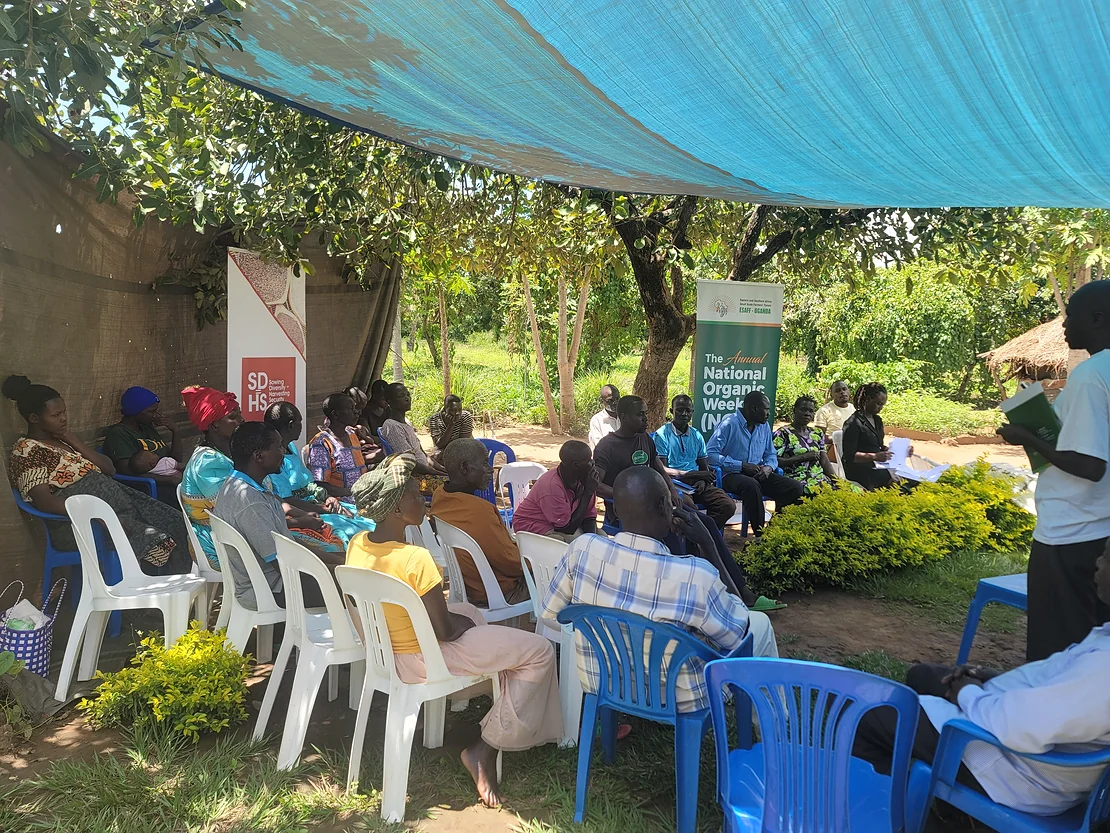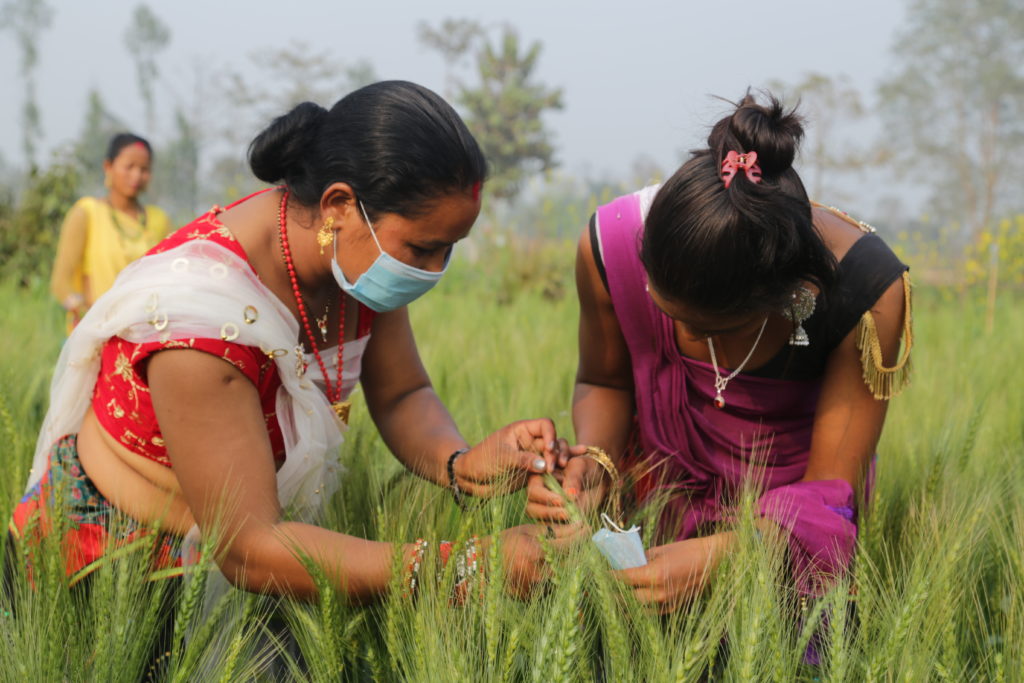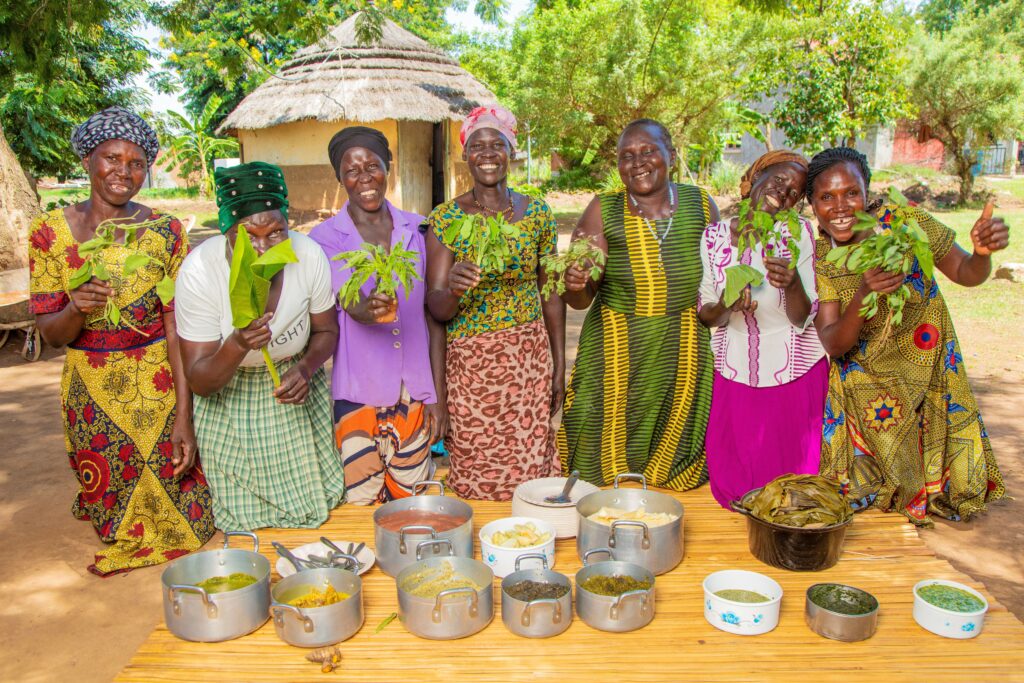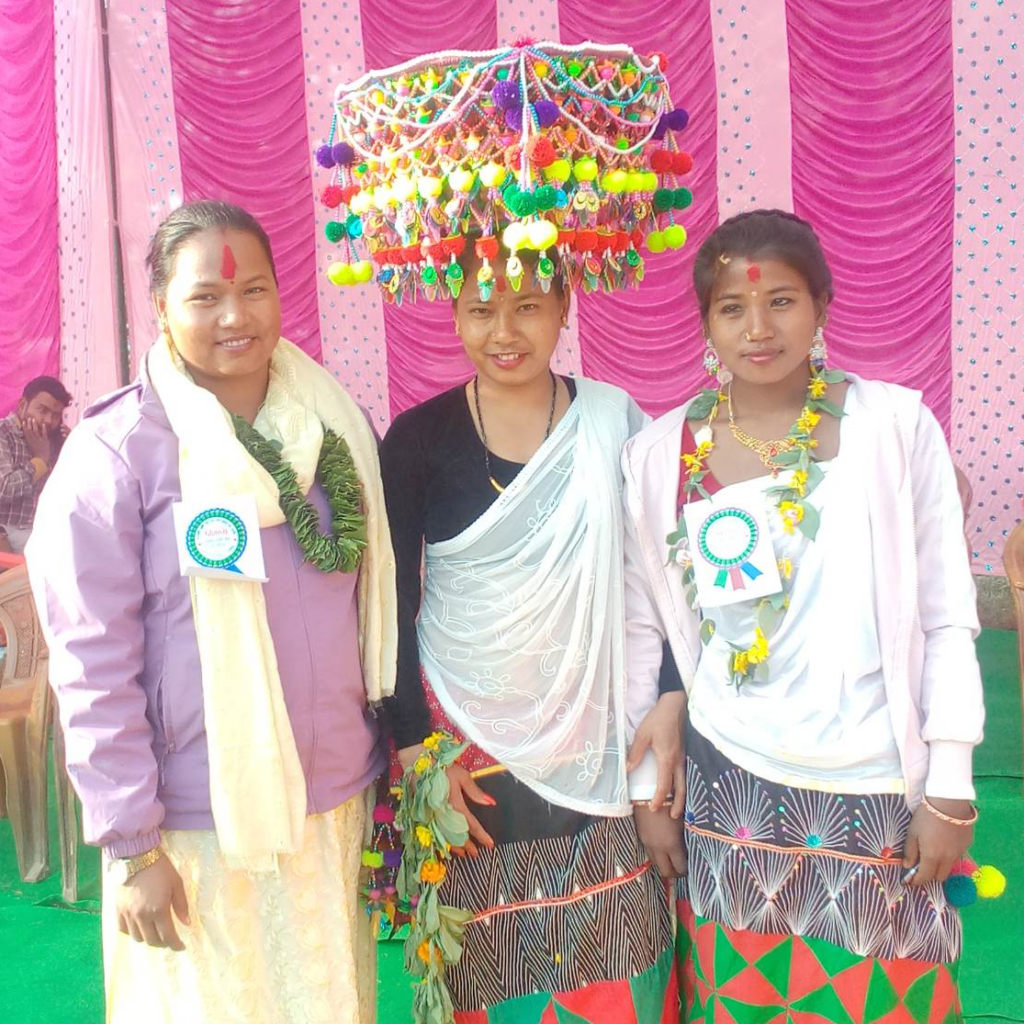The original article can be found on ESAFF website
The SD=HS Program has registered great success in Uganda over the past few years, however, little has been made known to the different stakeholders and platforms in agriculture to justify the role of farmers in maintaining and working in farmer managed seed system which are playing a great role in providing quality seeds to the small scale farmers in the community.
ESAFF Uganda and PELUM Uganda embarked on organizing the seed caravan and policy discourse to provide a platform for experiential learning, dialogue, knowledge sharing and policy integration in order to foster partnership and linkages among key stakeholders to ensure long term sustainability of the seed diversity for household nutrition and food security.
The farmer managed seed system caravan and policy discourse was conducted in 6 districts including Omoro, Amuria, Apac, Adjumani, Nebbi and Soroti and this was intended to facilitate cross learning and experience sharing among the farmer field schools and other stakeholders in participatory plant breeding, farmer seed enterprise, gender responsive approaches and the promotion of neglected and underutilized species and community seed banks, generate policy issues and recommendations for further dialogue and debate on promoting farmer variety registration and farmer managed seed systems and strengthen partnerships and linkages among farmer field schools and other stakeholders as a measure of ensuring sustainability.
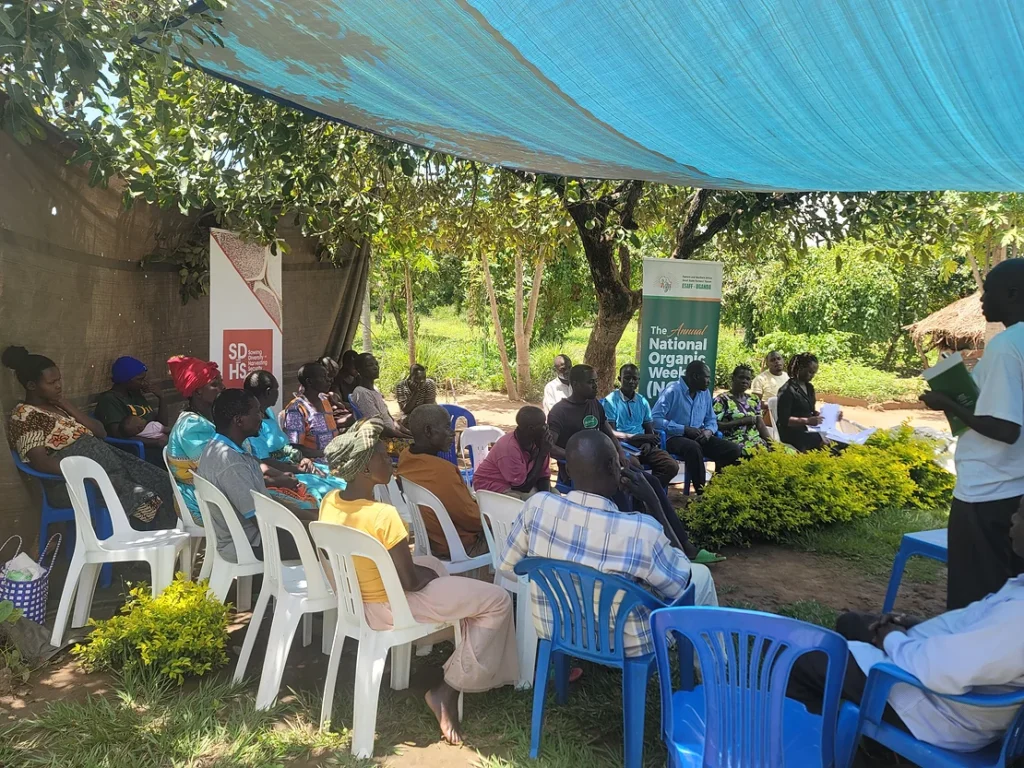
The Seed caravan was conducted through various activities including Field visits, district convenings, policy forums, Networking sessions, mini exhibitions, documentation and media engagements all which facilitated cross pillar learning and knowledge sharing on PPB, FSE, Nutrition and Local food plants, gender responsiveness and youth engagements. 5 community seed banks were visited during the field visits to assess the diversity of seeds being kept and managed in the community seed banks, their operations, and management systems.
The caravan provided a great platform for different stakeholders to learn and share experiences in regard to use and promotion of farmer managed seeds as farmers were able to prove that farmer managed seeds is the more reliable, affordable and dependable seed for the small scale farmers. Through the different activities where participants appreciated the genetic diversity across the different communities and regions of Uganda.
This increased on farmers understanding of the different components of the program including the different breeding methods, the Gender Journey Module, community seed banks among others all which have contributed to the success of the program in Uganda. Among the key achievements of the program also included the increased diversity of genetic materials in the communities due to introduction of new varieties and restoration of the lost varieties and this has greatly contributed to seed and nutrition security in the rural farming communities.
The climax of the caravan saw a commitment from the different stakeholder including local government leaders, production department (extension officers), research institutions, and the national gene bank management commit themselves to supporting the institutionalization of farmers seeds and varieties in Uganda.
Through the caravan, several policy ideas on legalization of farmer managed seeds were generated during the caravan and policy forum such as establishing CSB in every village in Uganda and registration protocol of farmer varieties and seed business.

